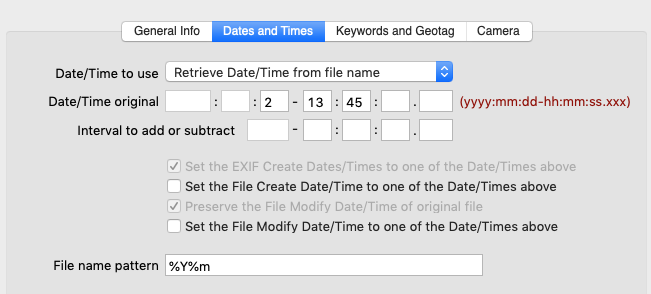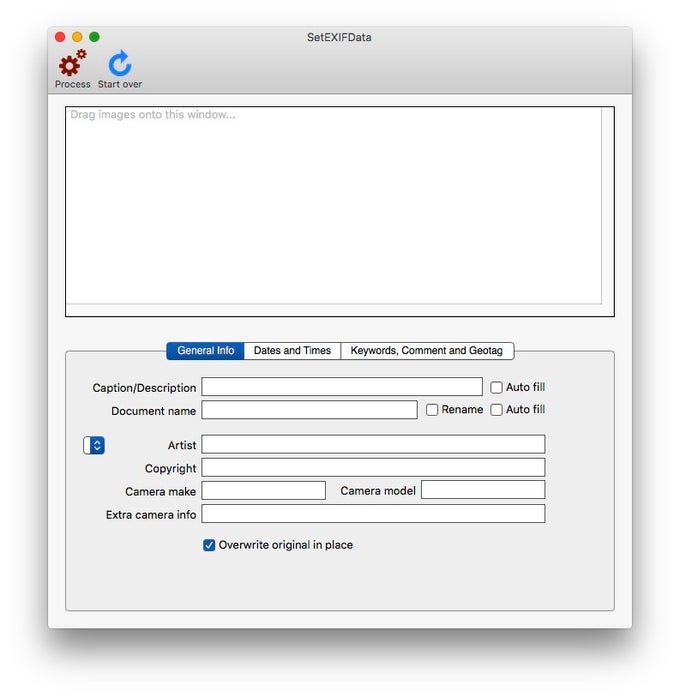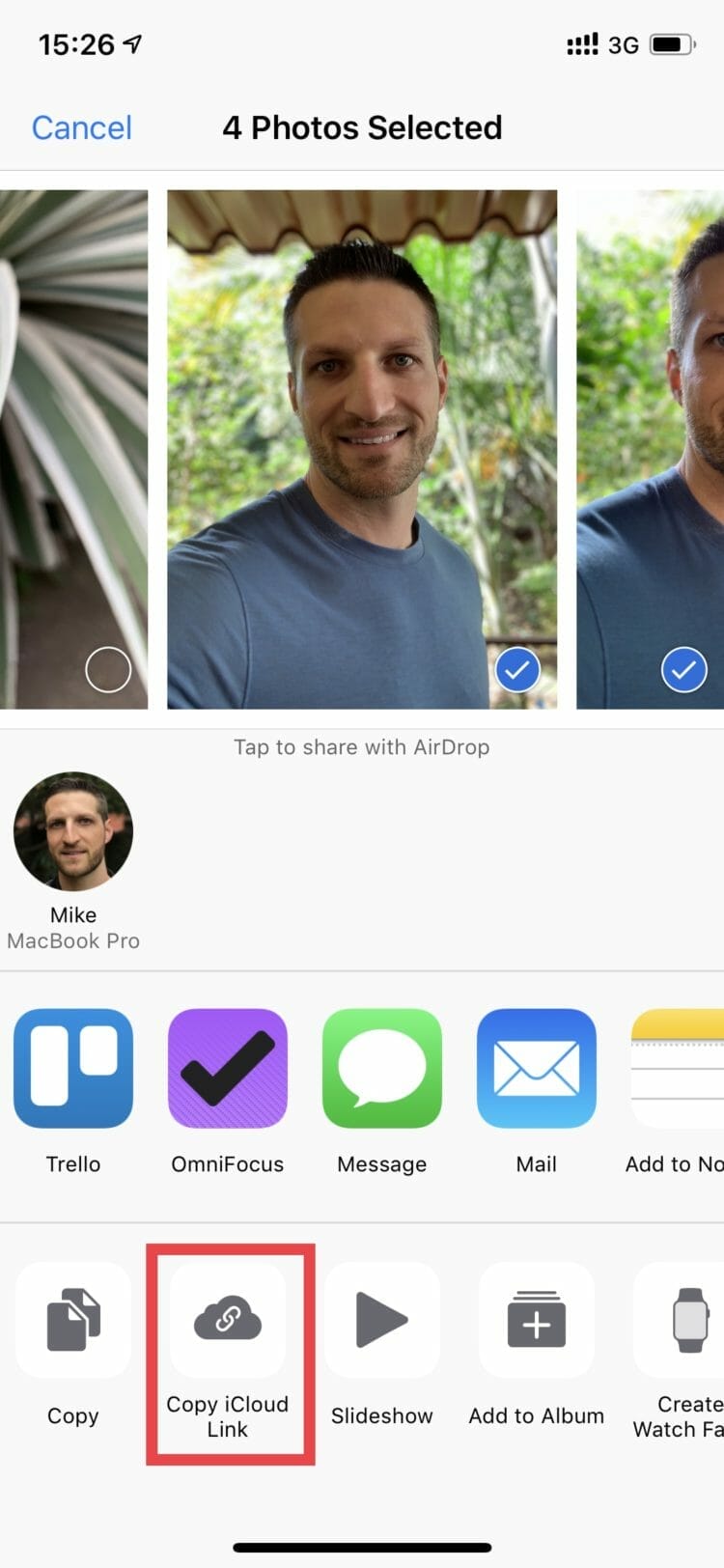
- Setexifdata
- Descargar Setexifdata
- Set Exif Data Program
- Setexifdata
- Set Exif Data Crack
- Set Exif Data Serial
The occasional 'same time' issue, which probably won't happen too often (might happen if I have photos from several cameras whose clock is not set identical or for which the internal clock got messed up),could be fixed with 'SetExifData'. You signed in with another tab or window. Reload to refresh your session. You signed out in another tab or window. Reload to refresh your session. To refresh your session.
Jul 08, 2020 setExifData (const ExifData &exifData) Todo: Not supported yet, requires writeMetadata. Calling this function will throw an Error(kerInvalidSettingForImage). Void setIptcData (const IptcData &iptcData) Todo: Not supported yet, requires writeMetadata. Calling this function will throw an Error(kerInvalidSettingForImage). Thanks for reviewing @slashrsm! Let's address point 5 before anything else, I think this is the key point: Adding functions to existing interfaces is breaking BC. SDS82 delivers high-end track&trace, unloading reports, to-do lists and server monitoring. SDS82 also offers socialising for the disabled and hosts a short message service.
Example 1: exifprint.cpp
This is a very simple program to read and print the Exif metadataof an image. Go to Example2 to see how theoutput looks like.
// ***************************************************************** -*- C++ -*-
// Sample program to print the Exif metadata of an image
#include <exiv2/exiv2.hpp>

#include <iostream>
#include <cassert>
int main(int argc, char* const argv[])
std::cout << 'Usage: ' << argv[0] << ' filen';
}
Exiv2::Image::AutoPtr image = Exiv2::ImageFactory::open(argv[1]);
image->readMetadata();
Exiv2::ExifData &exifData = image->exifData();
std::string error(argv[1]);
throwExiv2::Error(1, error);
Exiv2::ExifData::const_iterator end = exifData.end();
for (Exiv2::ExifData::const_iterator i = exifData.begin(); i != end; ++i) {
std::cout << std::setw(44) << std::setfill(' ') << std::left
<< '0x' << std::setw(4) << std::setfill('0') << std::right
<< std::setw(9) << std::setfill(' ') << std::left
<< std::dec << std::setw(3)
<< i->count() << ' '
<< 'n';
}
//catch (Exiv2::AnyError& e) {
std::cout << 'Caught Exiv2 exception ' << e.what() << 'n';
}
Example 2: addmoddel.cpp
Sample usage of high-level Exiv2 library calls to add, modify and delete Exif metadata.
// ***************************************************************** -*- C++ -*-
// Sample program showing how to add, modify and delete Exif metadata.
#include <exiv2/exiv2.hpp>
#include <iostream>
#include <cassert>
int main(int argc, char* const argv[])
if (argc != 2) {
return 1;
std::string file(argv[1]);
// Container for exif metadata. This is an example of creating
// exif metadata from scratch. If you want to add, modify, delete
// metadata that exists in an image, start with ImageFactory::open
// *************************************************************************
// This is the quickest way to add (simple) Exif data. If a metadatum for
// a given key already exists, its value is overwritten. Otherwise a new
exifData['Exif.Image.Model'] = 'Test 1'; // AsciiValue
exifData['Exif.Image.SamplesPerPixel'] = uint16_t(162); // UShortValue
exifData['Exif.Image.XResolution'] = int32_t(-2); // LongValue
exifData['Exif.Image.YResolution'] = Exiv2::Rational(-2, 3); // RationalValue
std::cout << 'Added a few tags the quick way.n';
// Create a ASCII string value (note the use of create)
Exiv2::Value::AutoPtr v = Exiv2::Value::create(Exiv2::asciiString);
v->read('1999:12:31 23:59:59');
// Add the value together with its key to the Exif data container
Exiv2::ExifKey key('Exif.Photo.DateTimeOriginal');
std::cout << 'Added key ' << key << ', value ' << *v << 'n';
// Now create a more interesting value (without using the create method)
Exiv2::URationalValue::AutoPtr rv(newExiv2::URationalValue);
rv->read('1/2 1/3');
// Add more elements through the extended interface of rational value
rv->value_.push_back(std::make_pair(3,4));
key = Exiv2::ExifKey('Exif.Image.PrimaryChromaticities');
std::cout << 'Added key ' << key << ', value ' << *rv << 'n';
// *************************************************************************
// Since we know that the metadatum exists (or we don't mind creating a new
Exiv2::Exifdatum& tag = exifData['Exif.Photo.DateTimeOriginal'];
date.replace(0, 4, '2000');
std::cout << 'Modified key ' << tag.key()
key = Exiv2::ExifKey('Exif.Image.PrimaryChromaticities');
Exiv2::ExifData::iterator pos = exifData.findKey(key);
if (pos exifData.end()) throwExiv2::Error(1, 'Key not found');
v = pos->getValue();
Exiv2::URationalValue* prv = dynamic_cast<Exiv2::URationalValue*>(v.release());
if (prv 0) throwExiv2::Error(1, 'Downcast failed');
// Modify the value directly through the interface of URationalValue
// Copy the modified value back to the metadatum
std::cout << 'Modified key ' << key
// *************************************************************************
key = Exiv2::ExifKey('Exif.Image.PrimaryChromaticities');
if (pos exifData.end()) throwExiv2::Error(1, 'Key not found');
std::cout << 'Deleted key ' << key << 'n';
// *************************************************************************
// Finally, write the remaining Exif data to the image file
Exiv2::Image::AutoPtr image = Exiv2::ImageFactory::open(file);
image->writeMetadata();
return 0;
catch (Exiv2::AnyError& e) {
std::cout << 'Caught Exiv2 exception ' << e << 'n';
}
Using the print function from Example1 shows the following Exif tags in the image. Note the tag Exif.Image.ExifTag: It is required by the Exif standard because the metadata contains an Exif.Photo.* tag and is automatically added by Exiv2 to ensure that the Exif structure is valid.
Example 3: iptcprint.cpp
This is a very simple program to read and print the IPTC metadata of an image.
// ***************************************************************** -*- C++ -*-
// Sample program to print the IPTC metadata of an image
#include <exiv2/exiv2.hpp>
#include <iostream>
#include <cassert>
int main(int argc, char* const argv[])
std::cout << 'Usage: ' << argv[0] << ' filen';

}
Exiv2::Image::AutoPtr image = Exiv2::ImageFactory::open(argv[1]);
image->readMetadata();
Exiv2::IptcData &iptcData = image->iptcData();
std::string error(argv[1]);
throwExiv2::Error(1, error);
for (Exiv2::IptcData::iterator md = iptcData.begin(); md != end; ++md) {
std::cout << std::setw(44) << std::setfill(' ') << std::left
Setexifdata
<< '0x' << std::setw(4) << std::setfill('0') << std::right
<< std::setw(9) << std::setfill(' ') << std::left
<< std::dec << std::setw(3)
<< md->count() << ' '
<< std::endl;
}
std::cout << 'Caught Exiv2 exception ' << e << 'n';
}
Image with the IPTC data
from examples 3 & 4
Example 4: iptceasy.cpp
This shows the quickest way to access, set or modify IPTC metadata, which is similar to how std::map works.The sample program writes the IPTC data to a file. Example 3, above, has the image with this IPTC data.
// ***************************************************************** -*- C++ -*-
// The quickest way to access, set or modify IPTC metadata.
#include <exiv2/exiv2.hpp>
#include <iostream>
#include <cassert>
int main(int argc, char* const argv[])
if (argc != 2) {
return 1;
std::string file(argv[1]);
Exiv2::IptcData iptcData;
iptcData['Iptc.Application2.Headline'] = 'The headline I am';
Descargar Setexifdata
iptcData['Iptc.Application2.Keywords'] = 'Yet another keyword';
iptcData['Iptc.Application2.DateCreated'] = '2004-8-3';
iptcData['Iptc.Application2.Urgency'] = uint16_t(1);
iptcData['Iptc.Envelope.TimeSent'] = '14:41:0-05:00';
iptcData['Iptc.Application2.RasterizedCaption'] = '230 42 34 2 90 84 23 146';
value.read('very!');
std::cout << 'Time sent: ' << iptcData['Iptc.Envelope.TimeSent'] << 'n';
// Open image file
Exiv2::Image::AutoPtr image = Exiv2::ImageFactory::open(file);
image->setIptcData(iptcData);
}
std::cout << 'Caught Exiv2 exception ' << e << 'n';
}
Example 5: xmpsample.cpp
Sample (test) usage of high level XMP classes. This example shows various aspects of setting XMP metadata, including complex types. See also Example 2: addmoddel.cpp
// ***************************************************************** -*- C++ -*-
// Sample/test for high level XMP classes. See also addmoddel.cpp
#include <exiv2/exiv2.hpp>
#include <string>
#include <iomanip>
#include <cmath>
bool isEqual(float a, float b)
double d = std::fabs(a - b);
}
int main()
// The XMP property container
// -------------------------------------------------------------------------
// Teaser: Setting XMP properties doesn't get much easier than this:
xmpData['Xmp.dc.source'] = 'xmpsample.cpp'; // a simple text value
xmpData['Xmp.dc.subject'] = 'Palmtree'; // an array item
xmpData['Xmp.dc.subject'] = 'Rubbertree'; // add a 2nd array item
// a language alternative with two entries and without default
xmpData['Xmp.dc.title'] = 'lang=de-DE Sonnenuntergang am Strand';
xmpData['Xmp.dc.title'] = 'lang=en-US Sunset on the beach';
// -------------------------------------------------------------------------
// Any properties can be set provided the namespace is known. Values of any
// type can be assigned to an Xmpdatum, if they have an output operator. The
// default XMP value type for unknown properties is a simple text value.
xmpData['Xmp.dc.one'] = -1;
xmpData['Xmp.dc.three'] = Exiv2::Rational(5, 7);
xmpData['Xmp.dc.five'] = int32_t(256);
// In addition, there is a dedicated assignment operator for Exiv2::Value
xmpData['Xmp.dc.seven'] = val;
assert(xmpData['Xmp.dc.one'].toLong() -1);
constExiv2::Value &getv1 = xmpData['Xmp.dc.one'].value();
assert(getv1.ok());
assert(getv1.toRational() Exiv2::Rational(-1, 1));
constExiv2::Value &getv2 = xmpData['Xmp.dc.two'].value();
assert(getv2.ok());
assert(getv2.ok());
assert(getv2.ok());
assert(isEqual(static_cast<float>(R.first) / R.second, 3.1415f ));
constExiv2::Value &getv3 = xmpData['Xmp.dc.three'].value();
assert(getv3.ok());
assert(getv3.ok());
assert(getv3.toRational() Exiv2::Rational(5, 7));
constExiv2::Value &getv6 = xmpData['Xmp.dc.six'].value();
assert(getv6.ok());
assert(getv6.ok());

assert(getv6.toRational() Exiv2::Rational(0, 1));
constExiv2::Value &getv7 = xmpData['Xmp.dc.seven'].value();
assert(!getv7.ok());
constExiv2::Value &getv8 = xmpData['Xmp.dc.eight'].value();
assert(getv8.ok());
assert(getv8.ok());
assert(getv8.toRational() Exiv2::Rational(1, 1));
Exiv2::XmpData::iterator pos = xmpData.findKey(Exiv2::XmpKey('Xmp.dc.eight'));
if (pos xmpData.end()) throwExiv2::Error(1, 'Key not found');
// -------------------------------------------------------------------------
// Exiv2 has specialized values for simple XMP properties, arrays of simple
// Add a simple XMP property in a known namespace
Exiv2::Value::AutoPtr v = Exiv2::Value::create(Exiv2::xmpText);
xmpData.add(Exiv2::XmpKey('Xmp.dc.format'), v.get());
// Add an ordered array of text values.
v = Exiv2::Value::create(Exiv2::xmpSeq); // or xmpBag or xmpAlt.
v->read('1) The first creator'); // The sequence in which the array
v->read('2) The second creator'); // elements are added is their
v->read('3) And another one'); // order in the array.
xmpData.add(Exiv2::XmpKey('Xmp.dc.creator'), v.get());
// Add a language alternative property
v->read('lang=de-DE Hallo, Welt'); // The default doesn't need a
xmpData.add(Exiv2::XmpKey('Xmp.dc.description'), v.get());
// According to the XMP specification, Xmp.tiff.ImageDescription is an
// alias for Xmp.dc.description. Exiv2 treats an alias just like any
// other property and leaves it to the application to implement specific
xmpData['Xmp.tiff.ImageDescription'] = 'TIFF image description';
xmpData['Xmp.tiff.ImageDescription'] = 'lang=de-DE TIFF Bildbeschreibung';
// -------------------------------------------------------------------------
// Register a namespace which Exiv2 doesn't know yet. This is only needed
// when properties are added manually. If the XMP metadata is read from an
// image, namespaces are decoded and registered at the same time.
Exiv2::XmpProperties::registerNs('myNamespace/', 'ns');
// -------------------------------------------------------------------------
xmpData['Xmp.ns.myProperty'] = 'myValue';
// -------------------------------------------------------------------------
// There are no specialized values for structures, qualifiers and nested
// types. However, these can be added by using an XmpTextValue and a path as
Exiv2::XmpTextValue tv('16');
xmpData.add(Exiv2::XmpKey('Xmp.xmpDM.videoFrameSize/stDim:w'), &tv);
xmpData.add(Exiv2::XmpKey('Xmp.xmpDM.videoFrameSize/stDim:h'), &tv);
xmpData.add(Exiv2::XmpKey('Xmp.xmpDM.videoFrameSize/stDim:unit'), &tv);
// Add an element with a qualifier (using the namespace registered above)
xmpData['Xmp.dc.publisher'] = 'James Bond'; // creates an unordered array
xmpData['Xmp.dc.publisher[1]/?ns:role'] = 'secret agent';
// Add a qualifer to an array element of Xmp.dc.creator (added above)
xmpData.add(Exiv2::XmpKey('Xmp.dc.creator[2]/?ns:role'), &tv);
// Add an array of structures
tv.setXmpArrayType(Exiv2::XmpValue::xaBag);
xmpData.add(Exiv2::XmpKey('Xmp.xmpBJ.JobRef'), &tv); // Set the array type.
tv.setXmpArrayType(Exiv2::XmpValue::xaNone);
xmpData.add(Exiv2::XmpKey('Xmp.xmpBJ.JobRef[1]/stJob:name'), &tv);
xmpData.add(Exiv2::XmpKey('Xmp.xmpBJ.JobRef[1]/stJob:role'), &tv);
tv.read('Wedding ceremony');
xmpData.add(Exiv2::XmpKey('Xmp.xmpBJ.JobRef[2]/stJob:name'), &tv);
xmpData.add(Exiv2::XmpKey('Xmp.xmpBJ.JobRef[2]/stJob:role'), &tv);
// Add a creator contact info structure
xmpData['Xmp.iptc.CreatorContactInfo/Iptc4xmpCore:CiAdrCity'] = 'Kuala Lumpur';
xmpData['Xmp.iptc.CreatorContactInfo/Iptc4xmpCore:CiAdrCtry'] = 'Malaysia';
xmpData['Xmp.iptc.CreatorContactInfo/Iptc4xmpCore:CiUrlWork'] = 'http://www.exiv2.org';
// -------------------------------------------------------------------------
Set Exif Data Program
for (Exiv2::XmpData::const_iterator md = xmpData.begin();
std::cout << std::setfill(' ') << std::left
<< md->key() << ' '
<< std::setw(9) << std::setfill(' ') << std::left
<< std::dec << std::setw(3)
<< md->count() << ' '
Setexifdata
<< std::endl;
// -------------------------------------------------------------------------
// Serialize the XMP data and output the XMP packet
if (0 != Exiv2::XmpParser::encode(xmpPacket, xmpData)) {
Set Exif Data Crack
throwExiv2::Error(1, 'Failed to serialize XMP data');
std::cout << xmpPacket << 'n';

// Cleanup
}
Set Exif Data Serial
std::cout << 'Caught Exiv2 exception ' << e << 'n';
}
The resulting XMP Exiv2 metadata and XMP packet is below.The same can be achieved with a set of commandsto the Exiv2 command line tool.





